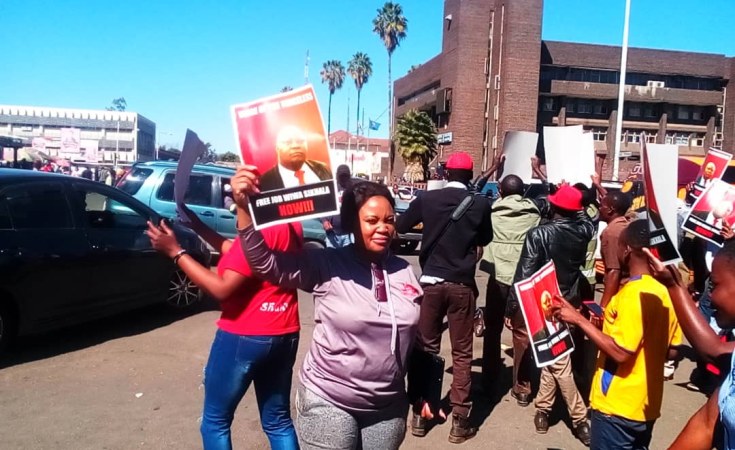AS the country builds towards the general elections a youth advocacy group has said poverty and an opaque electoral process are hindering young people from participating in plebiscite leaving them at the whims of politicians.
Zimbabwe youths are left in the periphery of the political sphere which has been attributed to lack of trust in the country's electoral processes.
According to last year's Afrobarometer survey report, this will lead to voter apathy in upcoming general elections among young people.
WELEAD director Namatai Kwekweza said young people are used as pawns by politicians due to the marginalisation.
"Currently, there are a number of challenges that will prevent young people from participating in the 2023 election with poverty playing a central role. According to statistics, 70% of young people in Zimbabwe are unemployed, and those that work experience extreme poverty.
"The economic environment exposes youth to exploitation and control for political gain. Underprivileged youths have been reduced to selling their rights for food, money, and promises that never materialize. In a democratic dispensation such as Zimbabwe, politicking is often practiced by those with political muscle, with youths reduced to being pawns in politics, side-lining political issues and the vote to a commodity ready to be picked up by those with cash.
"Young people are used to instigate violence against political rivals in exchange for money, drugs, alcohol, and food. Such bread-and-butter issues negatively impact meaningful youth participation and even democracy," said Kwekweza.
Political protagonists, Citizens Coalition for Change (CCC) and Zanu PF are counting on the young populace in this year's election.
This is buttressed by the two parties' mobilization efforts which is focused on tapping into the young demographic group especially in urban areas.
Youths are touted by analysts as key in turning around the tide in upcoming elections with many frustrated by economic rot which has left many unemployed.
With Zimbabwean elections having a history of being heavily scrutinised and contested, Kwekweza further added that this has eroded interest from young people.
She added: "Lack of transparency in previous elections has contributed to youth losing trust in Zimbabwe's electoral system, which is also contributing to youth voter apathy. Historically, elections in Zimbabwe have been hampered by a lack of transparency in the conduct of electoral processes, in particular voter registration, voting, and results management processes, which has contributed to a lack of faith and motivation to participate.
"A substantial portion of the youth we have worked with since 2019 believe that the electoral processes lack transparency. Even though youth will organize to participate in the 2023 election, there is genuine concern over the transparency of the electoral process.
"Some issues that youth highlight with regards to the lack of transparency in the electoral process include how the date of the election has taken very long to be proclaimed, which disadvantages other electoral candidates, and also how the public still has no access to the voter's roll less than three months before the election".


